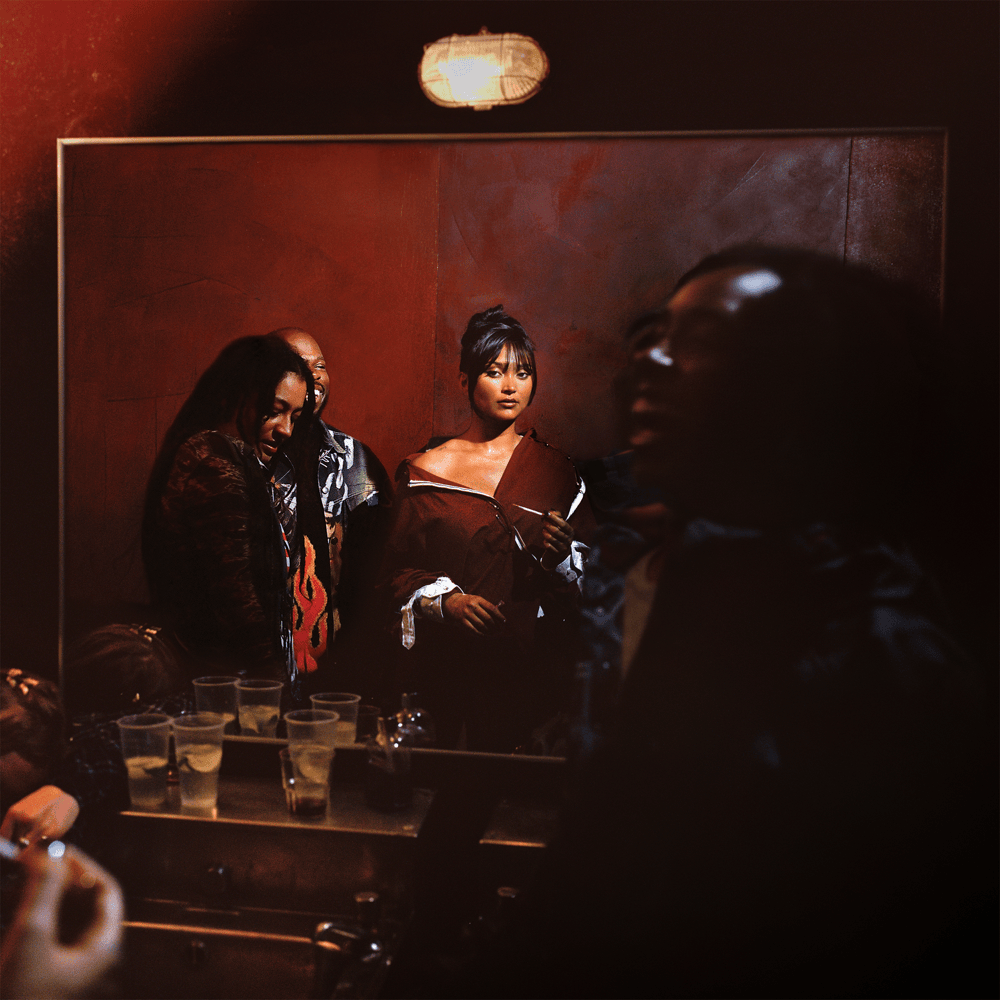REVIEW: Joy Crookes – Juniper

There’s something fitting about naming an album after a tree that thrives in places it shouldn’t. Juniper carries that spirit in its marrow. It’s resilient, stubbornly alive in harsh terrain, and evergreen. For Joy Crookes, the title isn’t decoration. It’s confession. This is a record made in the trenches, pulled straight from the weight of a mental health crisis, an artist facing herself and an industry that doesn’t always reward honesty in women. She’s said the studio became her solace, and you can hear it: songs that are less polished diary entries than they are raw transmissions. They don’t pretend to be tidy or resolved. They arrive live and direct, scarred but burning with warmth.
The opening track sets the tone with startling clarity. On “Brave,” Joy sings, “I’m so sick, I’m so tired / I can’t keep losing my mind / I wanna be brave, I wanna be in love.” It sounds like a plea, but also a dare. Bravery here isn’t cinematic, it’s not about charging into war—it’s about surviving yourself long enough to reach for love. That refrain hums through the whole album like a thread: wanting to connect even when connection terrifies you.
Nowhere is that contradiction sharper than on “Mathematics.” She sings, “I’m pretty, but I’m miserable,” folding beauty and suffering into one neat couplet. It’s one of those lines that cuts right past metaphor into something uncomfortably true. Love refuses equations, no matter how many ways you try to work it out. The futility of logic in the face of feeling is one of her favourite paradoxes, and she toys with it again on “Perfect Crime.” When she says, “I’m gon’ mix love into sex and suffer no side effects / I pour myself into you, still keep a glass of me too.” It’s a masterclass in songwriting, that balance between surrender and boundary, desire and self-preservation. You almost miss how radical it is because the line sounds so effortless.
The album keeps circling back to appearances, how they save us, how they betray us. “House With A Pool” looks glossy on the surface, but Joy slips in the darker underside: “She’s a plain-clothed firefighter / And she won’t tell you when there’s smoke in her eyes.” It’s the quiet devastation of someone who hides their alarms until it’s too late. Then “Carmen” takes aim at the wider stage, dismantling beauty culture with razor wit. “Free ride ’cause the neighbour wants to take you home / Y2K in your bell-bottom jeans / True religion, you can make them all believe” The satire is funny until you feel the loneliness beneath it, the way Brown and Black women are rarely invited into the conversation except as caricature. Crookes refuses the script, but she’s fascinated by how many chase it anyway.
That instinct to pull the personal into the political deepens in “Mother" — one of my personal favourites on the album. First, she lays bare the complexity of love between generations: “I know we’ve got problems, that’s just family / And God knows what we carry from our history.” The lyric is tender and unsparing, aware that love is braided with wounds inherited long before she was born. Initially, it seems like a domestic confession (family tensions, unresolved histories) but then the weight of empire presses in. “Heavy, heavy heartbreak made our country / Why does Mamma India feel so far from me?” In a few lines, she links intergenerational trauma to colonial violence, mapping how partition, war, and displacement still live in her body and her mother’s body. Then she turns painfully specific: “Really wish that touch was something that we didn’t have in common.” The final words she sings on this song are: “I know it's been bad, but, I won't let my baby live with any of my past!” She is choosing to break generational trauma. Few artists today manage to thread the intimate and historical with such precision. “Mother” is not a sentimental ode; it’s a reckoning with inheritance itself.
Elsewhere, the album finds release in unexpected ways. “First Last Dance” is a goodbye letter to anxiety but not written with grandiosity. She sings about vomiting (one of the more humiliating symptoms of panic) and somehow transforms it into catharsis. It’s strange, but deeply human, the way you can reclaim even the ugliest parts of your body by singing them out loud.
But Joy saves some of her deepest questions for the songs about love and identity. “Somebody To You” sounds like a relationship song, but underneath it’s about selfhood. “Who am I when I’m out of your sight? / I wanna see how we look apart.” It’s about the dangers of pedestalizing someone until you disappear. In truth, she’s admitted the song grew out of a familial rupture, which makes the longing cut even deeper. Then “Forever” arrives like a soft elegy. “Tomorrow never guarantees / But you’re alive in me, and that’s forever.” The song accepts mortality without dramatics, finding permanence only in memory and the traces love leaves behind.
The album closes in Paris, though it could be any city where you finally exhale. In the first verse she says, "...just because you're hurting don't mean I need to / Don't say I didn't try housing your pain in my light," a crucial reminder that you are not collateral for someone else's inability to love you or themselves. In verse two she laments, “Didn’t wanna fuck with no more Catholic guilt / When it comes to pride / I’d raise my heart to a girl or a guy.” Here, Joy faces her queerness against the backdrop of shame she inherited from faith. “I believed, I believed I was a sinner… Took so long.” There’s nothing abstract about that admission. It is the sound of someone untangling herself from theologies that branded her love as sin and finding the courage to call it holy instead.
What makes Juniper remarkable is not just the stories it tells, but the way they talk to each other. The grief of "Forever", the heaviness of “Mother” and the satire of “Carmen” are part of the same survival. The longing in “Mathematics” and the farewell of “First Last Dance” are both different faces of trying to live in your body. Even when the songs shift moods (sarcastic, romantic, mournful) they circle the same truths. That to love, to inherit, to be anxious, to resist beauty standards, to desire without shame, all require a bravery that isn’t loud but persistent; I mean, the intro track is literally called "Brave."
Compared to her previous album Skin, this one feels riskier, more embodied. She is not pricing social commentary from the outside looking in, this time she is in the centre of it all. And you believe her. Juniper doesn’t try to tidy anything up for public consumption. It’s messy, nuanced, and better for it. Listening feels like being invited into a room that smells of incense and rain, where someone you trust is finally speaking without disguise.
She has a way of making the ordinary startling, turning math into heartbreak, a swimming pool into a site of trauma, a mother’s voice into an intergenerational chorus. Each song is its own small act of archiving: of personal truth, of family memory, of queer love, of survival.
If her debut proved Joy Crookes could write with conscience, Juniper proves she can write with a spine. She’s funny when she needs to be, devastating when she must, and always honest. The album doesn’t resolve so much as it endures, like the tree it’s named after. It is evergreen not because it denies winter, but because it teaches you how to live through it.






